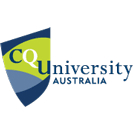Full description
This research examines the interrelated dynamics of internal communication, managing events, and performance among teams within the hospitality sector in Australia. It aims to address a gap in existing research evaluating the unique relationship between these elements in Australia’s hotel sector and provides worthwhile insights on enhancing team performance through improved communication and event management strategies. Existing studies have primarily examined how internal communication independently affects team performance. However, there's a scarcity of research exploring the interplay between these elements specifically within the realm of event management in Australia's hotel sector. The study's importance stems from its relevance to the rapidly changing hospitality sector, especially considering teamwork efficiency impact on the organisational performance and the need for resilience and efficiency in hotel operations, particularly post-COVID-19. This study provides an in-depth examination concerning internal communication, event management, and teamwork efficiency. By doing so, it contributes to the field providing valuable insights into these complex relationships, enhancing the understanding of these dynamics specifically within the Australian hotel industry context and addressing a critical knowledge gap in current hospitality management research.
The theoretical focus of this research is grounded in the multi-team systems framework, which explores the coordination and communication dynamics within multiple interrelated teams pursuing shared objectives, which was found to be particularly relevant to complex settings like hotel event management. The research expands existing theory by applying multi-team systems principles to event management in hospitality and providing a more nuanced comprehension of team interactions and communication specific to this industry. This new application of the theory offers fresh insights into the complexities of team dynamics and communication within the unique context of the hospitality sector.
This study utilized a mixed-method design that combined quantitative and qualitative approaches to enhance the understanding of team communication and its effects on different facets of team performance in the event management industry at Australian hotels. Quantitative analysis sought to validate findings across a larger sample, while qualitative investigation revealed deeper insights into the complexity of internal communication. The use of this comprehensive methodological framework was predicated on its ability to provide a holistic grasp of the subject matter, effectively utilizing the strengths of both research paradigms. Data were gathered from multiple sources, including an online survey (n = 345) with hotel employees and one-on-one interviews (n = 27) with hotel executives and managers. The study technique combined a dual approach to data analysis whereby linear regression and ANOVA tests handled quantitative data while qualitative material underwent theme analysis. The combination of these several data sources helped the researchers to develop a more thorough knowledge of the topic, where the results of quantitative data analysis showed team communication forecasts of the working environment, teamwork efficacy, and interdepartmental cooperation. In contrast, effective internal communication exhibited a positive correlation with overall team performance, signifying a robust interrelationship between communication and overall effectiveness, while clarity of team roles proved to be a vital element in decision-making, problem-solving, and interdepartmental collaboration, underscoring the significance of internal communication in hotel event management.
The combination of both methods yielded comprehensive understanding of the teams’ communication complex dynamics within Australian hospitality and event management sector, where quantitative research showed relationships between team performance and communication effectiveness, while qualitative research gave contextual depth and showed the ways in which communication shapes organisational success. Using the multi-team systems paradigm, this mixed-methods approach revealed that strategic internal communication enhances clarity and cross-functional synergy in demanding, multi-team environments. Beyond accepted knowledge of internal communication, the results of the research reveal special operational dynamics particular to event management and synthesize quantitative correlations with qualitative insights, so advancing theoretical frameworks in hotel management and organisational communication especially in the context of complex, multi-team systems in the Australian hotel events sector.
Issued: 2025-07-18
Created: 2025-07-18
User Contributed Tags
Login to tag this record with meaningful keywords to make it easier to discover
- DOI : 10.25946/29580863.V1



